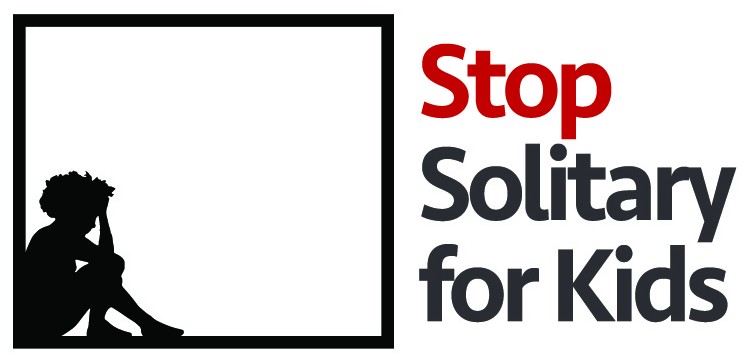Florida Lawsuit Challenges Use of Solitary Confinement for Youth (2019)
The Southern Poverty Law Center (SPLC), Florida Legal Services (FLS), and the Florida Justice Institute (FJI) filed a federal class action lawsuit, G.H. v. Marstiller, against Florida’s Department of Juvenile Justice (DJJ) to end the use of solitary confinement on behalf of more than 4,000 children in 21 state juvenile detention centers operated by DJJ. On December 6, 2019, the federal judge denied the defendant’s motion to dismiss, citing fundamental differences between adults and children that are relevant in the
Eighth Amendment context, including when evaluating conditions of confinement.
Between July 1, 2017 and June 1, 2018, DJJ isolated 4,310 children in solitary confinement a total of 11,738 times, meaning that many children were put in isolation repeatedly. In total, DJJ locked up 14,010 children in FY 2017-18. This means that approximately 30 percent of children were isolated in solitary confinement at some point while locked up. African American youth are disproportionately targeted for solitary confinement. They constitute 22% of Florida’s public school enrollment, but 51% of juvenile arrests, over 60% of children in DJJ secure detention, and 70% of children in solitary confinement statewide.
- Read the Press Release about the litigation
- Read the G.H. v. Marstiller Complaint
- Court’s Order Denying Defendant’s Motion to Dismiss (Dec. 2019)
Southern Poverty Law Center Report on Solitary Confinement (2019)
The report – Solitary Confinement: Inhumane, Ineffective, and Wasteful – reviews research on solitary confinement and presents the stories of three people who endured the practice, including a man who died by suicide after spending almost four years in solitary confinement in Florida’s prisons. Read more on solitary in Florida from SPLC here.
Florida Legislation Introduced to Limit Solitary Confinement for Kids (2019)
In 2019, several bills to ban solitary confinement were introduced in the Florida legislature. See a Breakdown of Florida 2019 Solitary Bills.
- Florida Senator Montford introduced SB 436 in October 2019, which would limit solitary confinement of youth 19 years old and under to situations. In those circumstances, isolation should not exceed 24 hours.
- Florida Senator Perry Thurston also introduced SB 110, which would ban the Department of Corrections or a local government from subjecting youth to solitary confinement except under limited circumstances.
- Representative Kamia Brown filed HB 557, which would require data collection regarding youthful offenders in DOC custody.
- Representative Dianne Hart filed HB 531, which would, among other things, place limits on disciplinary confinement for all in DOC, not just juveniles.
- Finally, Senator Farmer filed SB 762, which would place strict limits on the use of solitary confinement for both juveniles and adults.
- Research shows putting young prisoners in solitary confinement is dangerous. Some lawmakers want to ban the practice (Florida Phoenix, Mar. 2019)
After a lawsuit filed by the Legal Aid Society of Palm Beach County and the Human Rights Defense Center, the Palm Beach County Jail agreed to a settlement that significantly limit isolation for youth. In October 2018, the Florida Department of Justice filed a Statement of Interest in the case. According to the complaint in the litigation, the adult county jail kept children as young as 16-years-old in solitary in for periods as long as 18 months without exercise, education, or treatment. The youth in question were awaiting trial, meaning they had not been found guilty of anything. In addition to the Palm Beach Sheriff, the suit names the County School Board as a defendant for violating the Americans With Disabilities Act by failing to provide legally required educational services to youth in solitary. The lawsuit focuses on young males in solitary, since girls under age 18 who are charged as adults are kept in the jail’s medical unit.
Under the settlement, the jail will adopt new policy that still permits “segregated housing.” The sheriff’s department will use a rotating staff schedule to keep youth under the age of 18 who are charged as adults separated from other inmates to prevent isolation for administrative reasons. All youth in segregated housing will be permitted out of their cells “throughout the regular school day” with other youth in general population. These limits apply to all youth except those in protective custody.
Although the settlement does not limit the length of time that a youth can be in disciplinary solitary, it does mandates that, within 24 hours of isolation for any reason, the Sheriff’s Office and the School Board must meet and agree how to “allow equal access” to educational services and out-of-cell programming, as well as refer the youth to a mental health professional for evaluation. The sheriff’s office must also convene a weekly “Segregation Review Committee (SRC) meeting to review and plan for ways to accommodate each youth in segregation and evaluate alternative sanctions (alternative disciplinary sanctions must be established in an alternative behavior management policy, which must be drafted by Jan. 10, 2019).
- Settlement Agreement: H.C. v. PBSO (2018)
- Florida DOJ Statement of Interest (2018)
- Legal Complaint: H.C. v. Bradshaw (2018)
- “Sheriff to end solitary confinement for teens at Palm Beach County jail under settlement” (Palm Beach Post, Nov. 2018)
- Despite Reforms, Children in Jails Are Still Held in Solitary Confinement (TruthOut, July 2018)
- “Florida Teens in Confinement Suffered Mentally and Emotionally, Lawsuit Claims” (July 2018)
- “Palm Beach County Jail Keeps Teens in Solitary for Months Without Care, Education” (June 2018)
- “PBSO Sued Over Teen Solitary Confinement” (June 2018)
FLORIDA SENATE BILL 812 (2013)
SB 812, or the Youth in Solitary Confinement Reduction Act, would have prohibited the Department of Corrections or a local facility from subjecting a youth to solitary confinement except under certain circumstances; prohibited youth from “emergency: cell confinement for more than 24 hours; prohibited a youth prisoner from being subjected to disciplinary cell confinement for more than 72 hours. The bill died in the Criminal Justice Committee in 2013.
